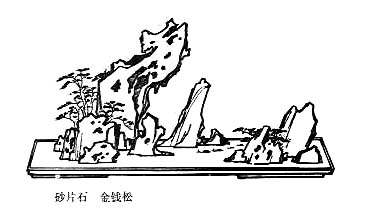Shi Jing 
 – Le Canon des Poèmes
– Le Canon des Poèmes
Le plus ancien recueil connu de poésie chinoise, plus de trois cents chansons, odes et hymnes. Tr. Legge (en) et Granet (fr, incomplète).
Shijing I. 4. (48)
Où cueille-t'on la cuscute ?
c'est dans le pays de Mei !
Savez-vous à qui je pense ?
c'est à la belle Mong Kiang !
Elle m'attend à Sang-tchong,
Elle me veut à Chang-Kong,
Elle me suit sur la K'i !
Où cueille-t-on le froment ?
c'est du côté nord de Mei !
Savez-vous à qui je pense ?
c'est à la belle Mong Yi !
Elle m'attend à... etc.
Où cueille-t-on le navet ?
c'est du côté est de Mei !
Savez-vous à qui je pense ?
c'est à la belle Mong Yang !
Elle...
Granet XLIV.
I am going to gather the dodder,
In the fields of Mei.
But of whom are my thoughts ?
Of that beauty, the eldest of the Jiang.
She made an appontment with me in Sangzhong ;
She will meet me in Shanggong ;
She will accompany me to Qishang.
I am going to gather the wheat,
In the north of Mei.
But of whom are my thoughts?
Of that beauty, the eldest of the Yi.
She made an appontment with me in Sangzhong;
She will meet me in Shanggong;
She will accompany me to Qishang.
I am going to gather the mustard plant,,
In the east of Mei.
But of whom are my thoughts?
Of that beauty, the eldest of the Yong.
She made an appontment with me in Sangzhong;
She will meet me in Shanggong;
She will accompany me to Qishang.
Legge 48

Le Canon des Poèmes – Shi Jing I. 4. (48) – Chinois off/on – Français/English
Alias Shijing, Shi Jing, Book of Odes, Book of Songs, Classic of Odes, Classic of
Poetry, Livre des Odes, Canon des Poèmes.
Le Canon des Poèmes, Les Entretiens, La Grande Étude, Le Juste Milieu, Les Trois Caractères, Le Livre des Mutations, De la Voie et la Vertu, 300 poèmes Tang, L'Art de la guerre, Trente-six stratagèmes
Bienvenue, aide, notes, introduction, table.
Index – Contact – Haut de page
